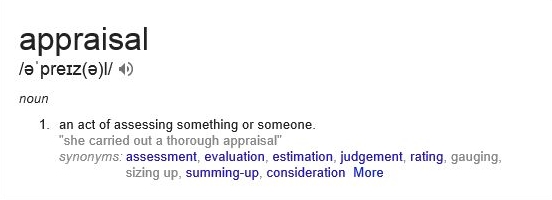Performance appraisals are generally uncomfortable events.
Not just when its my performance that is being reviewed, but also when I’m doing the reviewing. Having said that, I recognise it as an integral part of people management, and without such evaluations it would be impossible to help people develop and move forward in their careers.
Facilitating great business outcomes while enabling people to do interesting, meaningful and challenging work is essentially is what people management is about. If you can focus the conversation on how to progress someone’s career rather than what they’ve done well or otherwise, you actually have a shot at engaging them.
Engagement – one of the ultimate management goals – leads to discretionary effort.
Discretionary effort is what people choose to put into an activity, above and beyond what they are required to.
So how does one go about making performance appraisals a more comfortable event, which can in turn bring about more engagement? Here are some ways that I find helpful.
Not an annual event.
For starters, make the frequency contingent on how much support your staff need to get where they and you want to get to. Some people need lots of discussion and help, some just need little nudges. Figure out where they’re at, agree to a cadence, and stick to it.
Even if you catch up with them once a quarter, it feels a lot less burdensome than a massive career chat once a year.
Also important to note is this is only the committed schedule. If you or they feel like they are going through a challenging situation or are undertaking a stretch assignment, make time to give them extra attention.
Remove the formality.
Make the conversation as informal as you can. A performance appraisal should be a two-way conversation – meaning both parties need to be relaxed and comfortable speaking their minds for it to be effective. Generally this can’t happen in a rigidly formal setting.
If you can do it outside your office, great! If you can do it over coffee, even better. It breaks the ice and turns it into a friendly chat rather than an assessment.
If you need to sit in your office behind your desk in an authoritative position to feel confident, then perhaps you should re-think your career in people management.
Focus on them.
The best way to engage anyone is to answer the WIIFM (What’s In It For Me?) question for them. Most people I review don’t ever explicitly ask it, and its obvious some have never actually even thought about it. It is however quite helpful to frame the conversation around this so it becomes about them, their career path and their growth rather than a box-checking exercise.
Obviously, all of this has to occur within the context of your business operating environment and your team’s long and short term goals. There’s not much value dwelling on someone’s aspirations to become a world class, full time acrobat in a travelling circus if their primary role at work is project manager.
Use failures as lessons learned.
As I mentioned earlier, the best way to deal with failures and setbacks is to learn from them. A lack of failures and setbacks means someone isn’t really trying to push themselves out of their comfort zone.
Within reason and accepted thresholds, accept and appreciate risk-taking and failures, and provide a safe environment for people to do so. Really interesting and innovative ideas start to surface when people’s constraints are removed and they feel that their manager has their back.
Use weaknesses as opportunities.
Pointing out someone’s weaknesses – even if they are aware of and acknowledge them – isn’t very motivating. Instead, use the issue to have a conversation about the importance of addressing the weaknesses, what potential obstacles may be causing or exacerbating them, and what the path to improvement could be.
Framing the issue this way enables you to change the conversation from one where someone has to defend themselves to one where they are interested in exploring how to get better.
Be honest and transparent.
This goes without saying, but as the old proverb goes, “honesty is the best policy”. If you use lies and deception to extract performance out of people, you will eventually get found out, and the resulting disengagement and resentment will come back to bite you.
If career progression opportunities exist, are real, and are achievable, then that’s great. If they don’t, then do the right thing and let people know.
There are, of course, sensitive matters that you may not be able to fully disclose. Barring those, the more information you can provide to people, the better decisions they (and you) can make. Sometimes those decisions will result in them leaving, but that’s usually a good outcome for everyone involved.
Ask for feedback.
There’s not much point trying to get better at something without getting feedback about it. Apply the same principle to yourself, and get feedback about how the appraisal process feels and works (or doesn’t) for everyone else.
If you’ve made the effort to genuinely help others, given them time and attention, and acted honestly and transparently, most people will trust you and reciprocate with real feedback to improve the process – and your skill at implementing it.
So there it is. Certainly not a comprehensive list, but some of the ways I’ve found to make the conversation more meaningful and effective. Done the right way, performance appraisals can actually be something you and your staff can look forward to.
What are your strategies to making the performance appraisal process better?


Trackbacks/Pingbacks